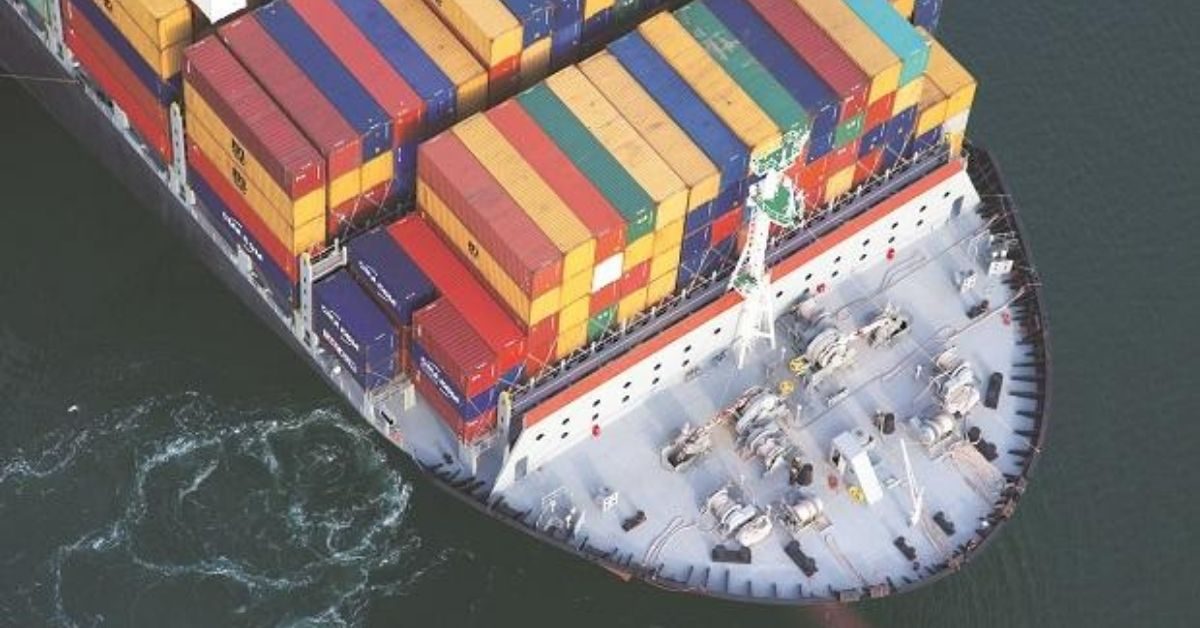The global maritime industry is set for tougher and more challenging times after Iran ramped up West Asia tensions by launching an unprecedented drone and missile attack on Israel, causing supply chain disruption and increasing the probability of choking shipping routes, experts here have said. Iran’s attack on Israel marks a distinct escalation in hostilities by bringing the two nations into direct conflict.
Iran and its proxies launched 330 missiles and drones on Israel late on Saturday night in retaliation to an alleged attack by Israel on a diplomatic mission of the Islamic Republic in Damascus on April 1 in which several people, including two top commanders, were killed.
There is a concern about the probability of a Persian Gulf shutdown, though many maintain hope of defusing fierce tension in the region, a delegate at the opening of Singapore Maritime Week on Monday, told PTI.
The Persian Gulf is a Mediterranean Sea in West Asia. It is connected to the Gulf of Oman in the east by the Strait of Hormuz, one of the world’s most strategically important choke points.
The diversion of each ship is estimated to cost USD 30 million through the Cape of Good Hope from the Suez Canal, according to Danish Sultan, managing director of PacMarine Services in Singapore.
The Suez Canal is an artificial sea-level waterway in Egypt, connecting the Mediterranean Sea to the Red Sea through the Isthmus of Suez and dividing Africa and Asia.
“With 80-85 per cent of the global cargo transported by ships, the shipping industry will have to go on in any environment,” he pointed out.
Shipping costs have already gone up by three to four times compared to pre-COVID level, Colin Er Wen-Jie, director of the transport department at the Sumitomo Mitsui Banking Corp said at the Singapore Maritime conference being held April 15-19 and being attended by over 10,000 delegates.
Supply chain disruption is certain though hope is being maintained that both Iran and Israel will not blow up the situation.
Diverting a ship via Cape of Good Hope adds 12-13 days of additional journey compared with sailing through the Suez Canal, according to Sanjay Verma, director Decarbonisation Solutions for Marine at Wartsila.
The “tonne mile increase will lead to a spike in shipping costs,” he said, adding that it would add to pollution and deflate all efforts being made for managing the climate as more and more fuel will be burned.
“Commodity prices, including oil, will be spiked,” Sanjiv Mishra, head of section, Date Centre Asia – Maritime at the DNV.
The global shipping industry is playing an important role in transporting 80-85 per cent of the global trade, he stressed.
“I hope the situation in the Middle East is controlled, and the supply chain is maintained,” said Mishra.
“Sourcing of commodities would change,” added Punit Oza, Founder of Maritime NXT Pte Ltd in Singapore.
Supply importing countries will switch to buying from nearer home markets even though it would be expensive, Oza believes.
Trade from Asia will benefit due to the delivery of expensive goods and a spike in prices of essential food products and items.
But the seafarers will suffer and the industry will face a manpower squeeze as sailors will not want to board ships and new recruits will be discouraged from joining the shipping industry, according to Captain Pradeep Chawla, CEO and Founder of MarinePALS.
“There will be fear of being captured,” he said, pointing to the 18 Indian seafarers held on board MSC Aries that had been captured by the Iranians.
Ship owners are more worried about their vessels out there and their board rooms are busy working out rescue efforts, diverting attention from the decarbonisation of the industry, said the shipping industry stalwart.
If the Persian Gulf is closed and other routes are choked, the US, as a net oil exporter, will benefit from higher prices, said an oil industry executive at the Maritime Week on condition of anonymity.
“We are set for a tumultuous market,” he added.
“A war situation, which we hope never happens, will put pressure on the shipping industry and shipbuilders,” he said.
The Iranian threat had led to worldwide diplomatic initiatives to thwart a possible further conflagration in the region already struggling with Israel’s offensive in Gaza following a terror attack carried out by Hamas in its territory on October 7 and also regular exchange of fire between the Jewish state and Lebanese Shia faction Hezbollah, which joined the war in solidarity with Hamas.







